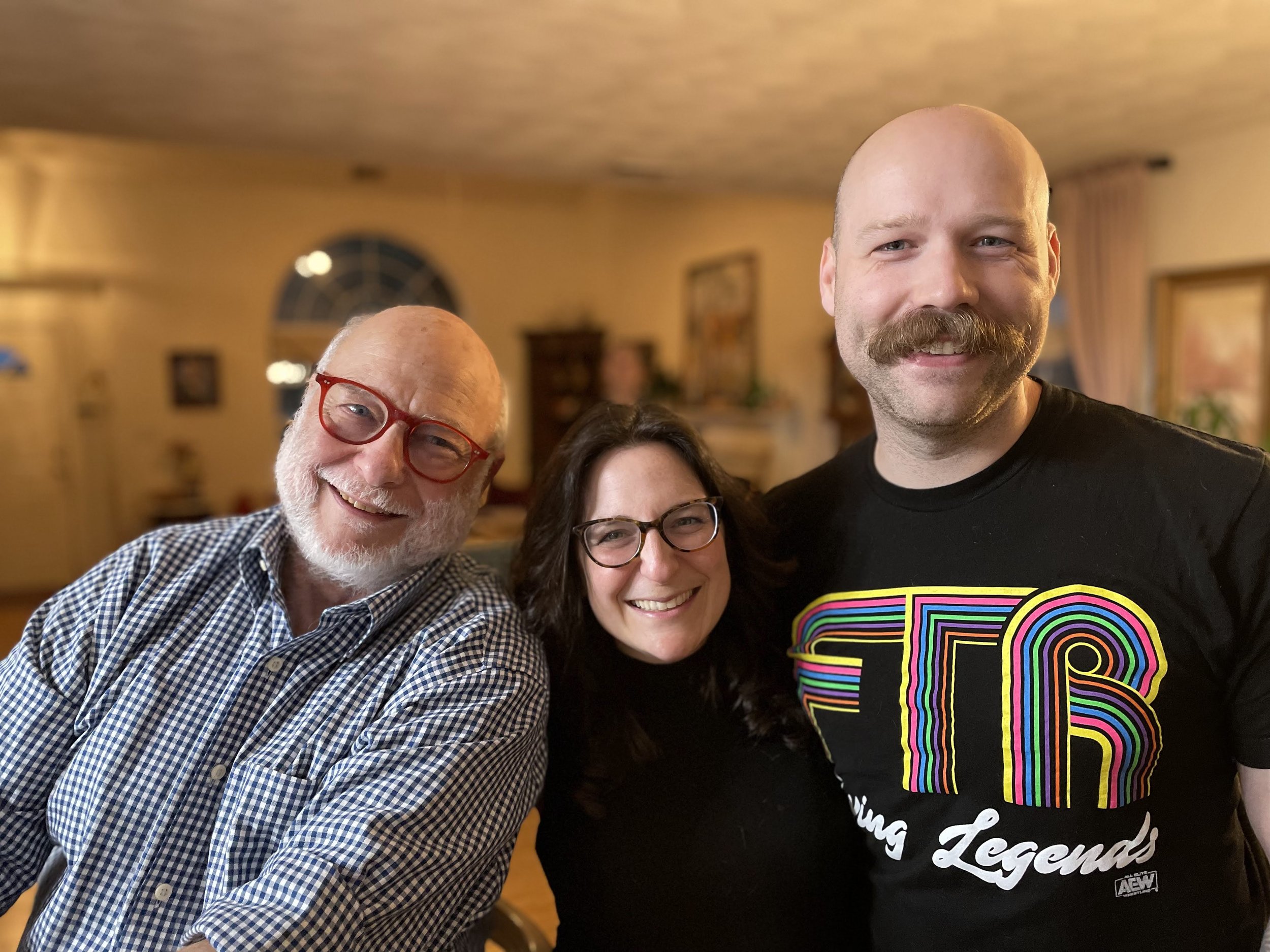Gratitude. What a loaded word, especially during weeks like this where you might be traveling, prepping, hosting, anticipating, or any other multitude of stressful activities that find you wondering.. what am I grateful for?
Let’s explore a different perspective on gratitude.
What is gratitude?
Oxford defines gratitude as “the quality of being thankful; readiness to show appreciation for and to return kindness.”
Gratitude is an active expression of the recognition of value that you have received from someone or somewhere else. It’s not just saying “thank you”, but giving thanks because you feel genuine appreciation for their gift, even if that gift comes in a disguise.
It’s hard to feel optimistic and thankful for hardship
The truth is, a lot of us are struggling right now, with post-pandemic weirdness still going on, inflation hitting hard, and it seems like everything rhymes with “recession” lately. Or maybe you are one of thousands who have been laid off this year and you’re going home unemployed. And even if you didn’t lose your entire savings to FTX, you may still find yourself this week struggling with comparisonitis. Hi, same 👋
One of my friends lives just a few minutes from her whole family, and they’ll be getting together for the full-on Thanksgiving experience. She takes walks with her dad every week, sees her little nieces all the time and can just drop by her sister's place when she wants to hang out.
Am I happy for her? Of course! Does part of me wish I had what she had? Yup.
I’m so grateful for the life my husband and I have created here in Virginia with dear friends who have become ‘chosen family’.
But seeing friends who are so geographically close to their families reminds me how much I would absolutely adore if seeing my fam was an everyday thing instead of a special occasion.
What could I come back to that would remind me that there’s still a beauty in that? That we get to create a chosen family, reminds me how much family means and how many different shapes it can take. Appreciating an age and stage in your life for all that it is and what it is not.
Gratitude is the backbone of Visioning
Clarifying your Guiding Principles (sometimes we call them Core Values) is a critical part of the Visioning process. Asking myself this “gratitude question” prompts me to honestly examine if I’m living in alignment with my values or not.
After lots of brainstorming I landed on this prompt because I’ve had my fair share of comparisonitis in the past. I knew this question would help me come back to center when I found myself going down the rabbit hole of negativity:
Am I appreciating everything for what it is and what it is not, and expressing that appreciation?
Instead of feeling frustrated or disappointed with the absence of something, this question brings me back up to the surface. I can take a step back and make the intentional choice to be grateful for the contrasts in my life. To not just accept but to actively express my appreciation for where I’m at, regardless of how that stacks up against others. This reaffirms my Core Values and cements my contentment for where I’m at along my journey 💙
The benefits are real, if you can build the habit
Science is clear: gratitude, when practiced daily, compounds and can change your neural networks, not to mention a laundry list of physical and mental benefits, which are still being studied, and may have lasting effects on the brain, like:
Decreased stress, anxiety and depression
Higher levels of satisfaction with your life, accomplishments and relationships
Higher self-esteem and self-acceptance
Ability to weather negative events
Interesting physical health benefits that are still emerging, like lower blood pressure, reduced inflammation and overall better health
Robert Emmons, a top research expert on gratitude, explains that it is primarily an exercise for strengthening our relationships, mainly because gratitude involves two parts: recognition that we’ve been blessed, and acknowledgement of the people and systems that have blessed us and supported us and given to us.
When you know what feeds you, you won’t hesitate to have confidence in your nonnegotiables. That confidence in who you are and your Core Values, my Visionary friends, is clarity.
11 gratitude exercises to do alone or with people you love
Gratitude in a jar. Everyone write something (or 2 things, or 5, or every day for a month, etc) they’re grateful for on a small piece of paper and put it in a jar. Take turns reading them aloud at the table and try to guess who wrote them.
Re-read your Vision! Go back to your previous intentions and read them with intentional vagueness in mind. You’d be surprised how many examples you can find where you were living your Vision this year.
Gratitude Dinner Daily. Practicing is a habit, no matter which exercise you choose. James Clear practices this one with his family: When I sit down to eat dinner, I say one thing that I am grateful for happening today.
Write thank you notes. There’s nothing like opening a hand-written card with a special note in it just for you that reminds you someone cares about you. But science shows, there’s more positive neural benefit to the note-sender, rather than the note-receiver. So bust out a pen and show gratitude to someone in your life.
Call someone. Even better than a note, you can immediately hear their voice and tell them what you admire about them, recall a fond memory together, or leave a nice voicemail telling them you’re thinking about them.
Help someone. Fall is the time of year where people are usually feeling a little warmth in their hearts. Why not tap into that feeling all-year round and volunteer in your community every season?
Share a hobby with someone. Teaching a passion to someone else who wants to learn, or being fully present while someone else shares their passion with you. Being able to share something that brings another joy, amplifies that joy and brings you closer together.
Small gestures. It could be as simple as doing the dishes, or as impromptu as picking up some flowers when you grab the milk on the way home. Either way, sneaking in small ways to remind your partner, family and friends you care about them, is like giving out little gratitude sprinkles all day long.
Write a manageable daily Vision. Success for the day might mean just sending that one follow up email, one more job application, or another small step along your larger roadmap. When you’re facing some serious hardship especially, a daily Vision can help you feel successful at the end of every day, and help break down your process into smaller more realistic steps.
Journal. Not for everyone, but written expression has been proven to help shift thought patterns. Whether you free write or use prompts, reflecting on what you’re grateful for on paper can have amazing effects.
Affirmations. Repetition works to build habits. Turns out, we can shift our brains away from negative emotions. Build your gratitude habit by interrupting yourself when you notice your inner (or outer!) voice being unkind to yourself. Shift your thinking intentionally and turn a potential thought spiral into a positive affirmation. Repeating these positive affirmations when you wake up or when you go to bed can help wipe your mind clean of negativity and start a new thought pattern. Here’s how to do it👇
A powerful way to practice gratitude is to shift negative thinking 🪄
As soon as you notice yourself starting to spiral down a negative thought pattern, try to just recognize that you are doing it.
For the first few days, simply be aware of the action you are taking in an observant way. Observe the way you feel when you let yourself go down the negativity rabbit hole.
Once you’ve watched yourself doing this for a few days, begin to stop yourself. Actively say, even out loud, “you’re doing that thing, where you… compare yourself to others, wish you made more money, think you should have a new job by now, resent your partner, etc.
Once you’ve stopped yourself, you have the opportunity to introduce a new thought pattern.
I use, “But right now I feel grateful that…” and then tell yourself something opposite: “I have close friendships, my career path has many doors that can open, my partner is human and loves me".
Replacing negative thoughts with positive ones does double duty
A University of Berkeley study by Y. Joel Wong et al has solidified scientific research on whether written expression of gratitude improves mental health. (TLDR, yes it does!) The researchers found:
“About 4 weeks as well as 12 weeks after the conclusion of the writing intervention, participants in the gratitude condition reported significantly better mental health than those in the expressive and control conditions, whereas those in the expressive and control conditions did not differ significantly. Moreover, lower proportions of negative emotion words in participants’ writing mediated the positive effect of condition (gratitude versus expressive writing) on mental health.”
Emphasis mine, because wow. All it takes is for us to stop “shoulding” all over ourselves and we can be happier? Who woulda thunk!?
From their Greater Good article on the study:
”Perhaps this suggests that gratitude letter writing produces better mental health by shifting one’s attention away from toxic emotions, such as resentment and envy. When you write about how grateful you are to others and how much other people have blessed your life, it might become considerably harder for you to ruminate on your negative experiences.”
Sounds obvious, but in the moment it can be so hard to not slide down all those anxious rumination traps. Especially when you are facing a truly hard life situation. Been unemployed for months? It’s hard to feel positive when you’ve gotten your 200th rejection. Reflecting on self-talk is easier said than done. But like any muscle, we have to work it out to build it up 💪
The best part about practicing redirecting your negative emotions? Not only do you reap the benefit of reduced negative self-talk, you also get to replace those thoughts with positive ones, which continues to take away power from negative thoughts. This creates a positive feedback loop of:
gratitude > expression > living our core values > gratitude > repeat
Before long you start describing yourself to people as a “default optimist” and “someone with a positive outlook” and dare I say… grateful.
With gratitude,
Lois


